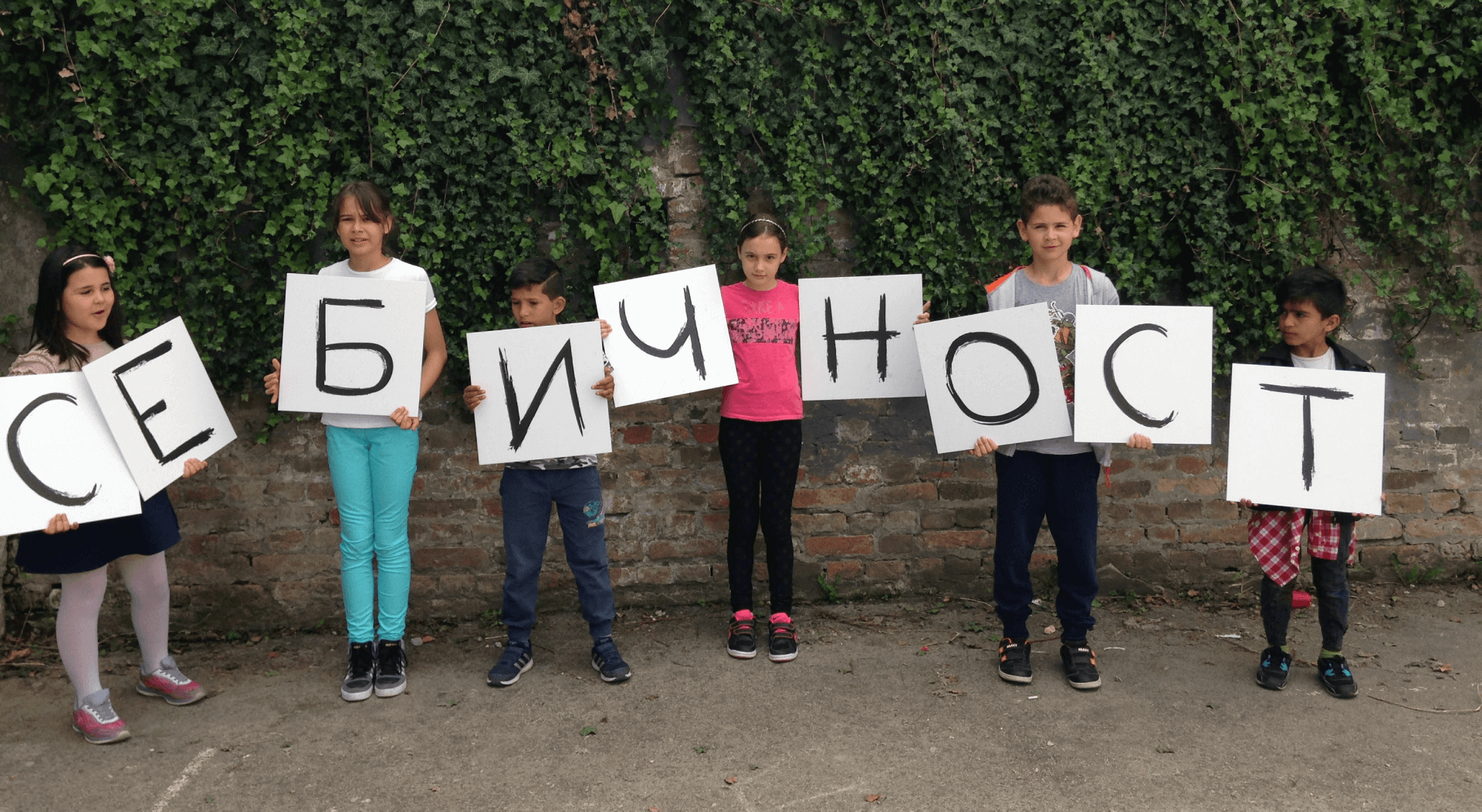Awareness raising efforts work best when targeted, and the TV show “Bad Words” (Serbian: Ružne Reči) speaks to children, the ones who can make the greatest change in society by closing the vicious circle of discrimination and prejudice.
Bad Words is a children’s show broadcasted since 2017 on the Radio Television Serbia. It is inspired by the Yugoslav children’s show, Poletarac from the 1970s, aiming to break stereotypes and show that all children share the same desires, fears and common attitudes. It explores so-called “bad words” and their alternatives, while covering various social issues as sub-themes within 30 episodes. The show is bilingual, meaning Roma and non-Roma actors speak in both Serbian and Romani language, and it also features subtitles in the respective language.
This show has been developed with the support of the German Cooperation through the Regional project on Social Rights of Vulnerable Groups (SoRi) with the support of the Migration for Development Programme (PME) and the Reform of Vocational Education and Training Project (VET). It was produced by ARTAKCIJA from Belgrade. The author of the concept, the script and one of the directors is Boban Sekrlić.
Recently the show became available in a digital format on the online platform of RTS. This makes it easily accessible and thus with a potential to reach a broader audience. The regional project on Social Rights for Vulnerable groups, which is currently in its second phase, is also exploring possibilities for further disseminating the show and the approach throughout the Western Balkans.
The fact that “Bad Words” became available online, inspired us to look back on the process of how this show was developed. Therefore, we spoke to Sanja Radović from „Art akcija”, the production company of the show and Boban Skerlić, the author.
How was the process of filming the TV series “Bad Words” – the impressions from the filming, and from your perspective, what makes this series special?
Boban Skerlić: “Each filming, once the process is completed, is most often remembered by the atmosphere in which you have worked. Our shooting atmosphere that included many children being in front of the cameras for the first time, with no simple tasks, and with simultaneous communication in two languages, at some moments may have seemed a bit chaotic. But at any moment, wherever you looked on the set, you could see smiles, hear children’s chuckles while they teach each other new words, correct themselves in the pronunciation, or performing acting tasks. We could see our dreams come true, what we were imagining as an outcome of the filming of the series was becoming reality. Pure childhood friendships were born free from all obstacles and prejudices.
The fact that we were able to implement this idea and record “Bad Words” is first and foremost personally and then professionally important to directing and production team, precisely because of the purpose with which we started this story. We sincerely believe that it is important for the society in which we live. However, the audience should speak about this. What we believe is that participation in the series itself was significant to all the children who were part of the process and that those days of filming and socializing permanently laid the foundations for them to accept the different one, the other, based on love, understanding and tolerance, with a clear picture of how much saying bad words and the deeds that usually accompany them can hurt someone else. If we were able in this way to reach and touch at least one part of the audience that watched this series, we believe we have done something significant.”
Considering that the TV series has been repeatedly broadcasted on the national television RTS, what do you think about the fact that RTS placed this content on the RTSplaneta web platform and thus enabled utilization and easier access to the content by the public?
Sanja Radović: “The Internet has long ago become a playground for many children where they like to spend much of their time, therefore it is a good place to meet with them if you want to teach them something or just see and hear them or draw their attention. Some research shows that there is a growing number of contents that are gaining importance for children in real life only after they have been seen online. Because of all this, we were delighted by the news that “Bad Words” is now available online as well, and at the same time this gives us the opportunity to be indefinitely reached by a wider audience, of different ages, outside our country. We primarily refer to the countries in the region because of the closeness of the language, but also to children, including adults in the diaspora around the world who speak or are close to ours and/or the Romani language.”
“Namely, although the main goals of this series were to erase the existing prejudices and stereotypes regarding the Roma minority in Serbia while preserving its identity and culture, we are aware that this community faces similar problems in the neighbouring countries. Therefore, we think that it is wise to communicate with children before they are poisoned by adult prejudice, and thus increase, at least a bit, the chance to build the foundations of healthy societies in which there are no bad words.”
The production of the show was also supported by the Ministry of Culture and Information of the Republic of Serbia, Hemofarm Foundation and RTS.
The show is available on the following link: https://rtsplaneta.rs/search/term/ruzne%20reci


